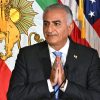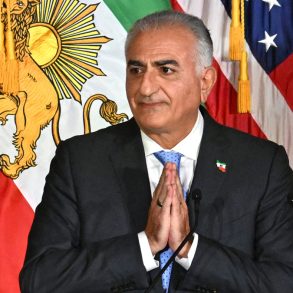What Trump put on the table
President Donald Trump unveiled a 20-point plan that starts with a simple trade. There would be an immediate ceasefire. All Israeli hostages would be released within 72 hours. In return, Israel would free 250 prisoners serving life terms and 1,700 Palestinians detained since Oct. 7, 2023, including women and children. The deal also covers remains. For each Israeli hostage whose body is returned, Israel would release the remains of 15 Palestinians. The first phase would also open Gaza to large-scale aid. Newsweek reported that hospitals, power stations, and basic infrastructure would receive immediate help once a ceasefire begins. The plan outlines a pathway for Palestinian self-determination. It says Hamas would have no role in governing Gaza and calls for a monitored process to put weapons permanently beyond use.
What Hamas says it might accept
Hamas publicly said it would accept parts of the plan. A spokesman told Al Jazeera the group is ready to release the remaining hostages and transfer governing authority in Gaza to a technocratic administration. Hamas added that other provisions “require further consultation.” In its formal statement, Hamas said it agreed to free Israeli hostages “according to the exchange formula contained in President Trump’s proposal, and as the field conditions for the exchange are met.” It also said it “renews its agreement to hand over the administration of the Gaza Strip to a Palestinian body of independents,” and that this would be based on Palestinian consensus with Arab and Islamic support. A senior official, Mousa Abu Marzouk, told Al Jazeera that Hamas was willing to give up “any kind of weapons” provided that “the occupation ends and the Palestinian control themselves.” His condition is clear. He added, “We do not need the weapons if there is no occupation.”
Where the answers are fuzzy
Important parts of the plan remain unanswered by Hamas. The statement did not address disarmament, which is central to the plan and a key demand from Israel. It did not say whether Hamas accepts the idea that it will “not have any role in the governance of Gaza, directly, indirectly, or in any form.” The phrase “field conditions” is vague and gives the group room to delay. Hamas also said that issues about the future of Gaza and Palestinian rights would be decided later “within a national framework.” That is not a clear yes. It is a promise to talk.
What Netanyahu is saying and doing
Prime Minister Benjamin Netanyahu welcomed the opening on hostages but kept Israel’s larger goals in place. He said Israel is preparing to act right away on Phase One “for the immediate release of all the hostages” and will work “in full cooperation with the President and his team in order to bring the war to an end in accordance with the principles set forth by Israel.” He has also repeated his opposition to a Palestinian state, stating, “It is not written in the agreement. We said we would strongly oppose a Palestinian state.” Israeli media report that members of his right-wing coalition remain skeptical and want proof of disarmament before any concessions. The Israel Defense Forces said the chief of the general staff ordered the military to advance readiness for the first phase while protecting Israeli forces.
Trump’s reaction and the clock he set
Trump publicly pushed for speed. He posted a message that read, “Stop the bombing now so that the hostages can be freed.” He later said, “Based on the Statement just issued by Hamas, I believe they are ready for a lasting PEACE.” He added, “Israel must immediately stop the bombing of Gaza, so that we can get the Hostages out safely and quickly.” Trump also set a deadline. He told Hamas to accept by Sunday at 6 p.m. Washington time. Otherwise, he warned that “all hell will break out.” In a short video from the Oval Office, he called it “a big day” and said, “We will see how it all turns out. We have to get the final word down in concrete.” He thanked Qatar, Saudi Arabia, Jordan, Egypt, Turkey, and “so many others” for helping. He also said “everyone would be treated fairly.”
How other leaders and groups are responding
The Hostages Families Forum said Trump’s demand to stop the war immediately was “essential to prevent the serious and irreversible harm to the hostages.” They urged Netanyahu to begin “efficient and swift negotiations.” European leaders spoke with guarded optimism. Britain’s Prime Minister Keir Starmer called Hamas’s response a “significant step forward” that brought the conflict “closer to peace than ever before” and said all sides should “implement the agreement without delay.” France’s President Emmanuel Macron said “the release of all hostages and a cease-fire in Gaza are within reach” and added that “Hamas’ commitment must be followed up without delay.” Regional mediators welcomed the movement. Qatar said it is working with Egypt and the United States to “complete discussions on the plan to ensure an end to the war.” Egypt said Hamas’s response showed “keenness” to stop the bloodshed and protect civilians. A Hamas adviser told the BBC that Trump’s statements are “encouraging,” and said the group is ready to negotiate immediately to achieve a prisoner exchange, end the war, and secure an Israeli withdrawal.
What critics and skeptics say about follow-through
Voices in Washington and Jerusalem are divided. Senator Lindsey Graham warned that the lack of disarmament, the insistence on Palestinian control in Gaza, and tying hostage release to negotiations are not a breakthrough. He said these moves amount to rejecting a take it or leave it offer. Former U.S. ambassador Daniel Kurtzer said Trump chose to highlight what Hamas embraced and shift pressure onto Israel. “Everything else, Trump can ignore,” he said, predicting the president would tell Netanyahu to proceed. A senior Arab diplomat called the response “positive,” saying Hamas had no choice. A former Western diplomat said, “This may be the beginning of the end, but there is still more work to do. Hamas has not accepted key elements of the plan nor the timeframe for hostage releases.” That diplomat added, “We either see hostages coming out this week or the war will restart.”
If implemented, the first 72 hours matter most. Hostages would come out. Hundreds of Palestinian prisoners would be released. Remains would be exchanged. Aid would enter immediately. Reuters reported that regional players like Egypt and Qatar support the effort while Iran opposes it. The BBC said Palestinian Authority leaders are wary of a deal that elevates a technocratic body in Gaza, since it may sideline them. Inside Israel, opposition leader Yair Lapid said there is a “genuine opportunity” to end the war and offered political backing if Netanyahu moves ahead.
The pattern that worries everyone
Families of hostages speak of “very cautious hope.” One mother said Hamas’s response is “evasive” and feels like “they say yes, but add a but.” That is the core concern. Hamas often keeps its choices open. It now says it will release hostages, stop governing, and even talks about giving up weapons, but only if conditions it defines are met. The group did not commit to disarm. It did not ban itself from Gaza’s politics. It did not define the field conditions that trigger the exchange. Each gap is a place to stall.
There is a narrow path to free hostages and pause the fighting. Netanyahu says Israel will move on Phase One. Trump set a deadline and is pressing both sides. Mediators are engaged. Yet the odds of Hamas accepting and keeping the full agreement are low given the record. The plan demands clear steps. Hamas’s answers are not yet clear. Until weapons are verifiably beyond use and a real technocratic transfer begins, this looks like another moment where promises are loud, timelines are short, and history tells us to be skeptical.
NP Editor: Everyone has to prepare for Hamas to accept, but they are doing the same thing they always to. They are jerking us around and trying to get more. This is not an agreement by any means and we predict that Israel will be begin attacks again within the next few days.








